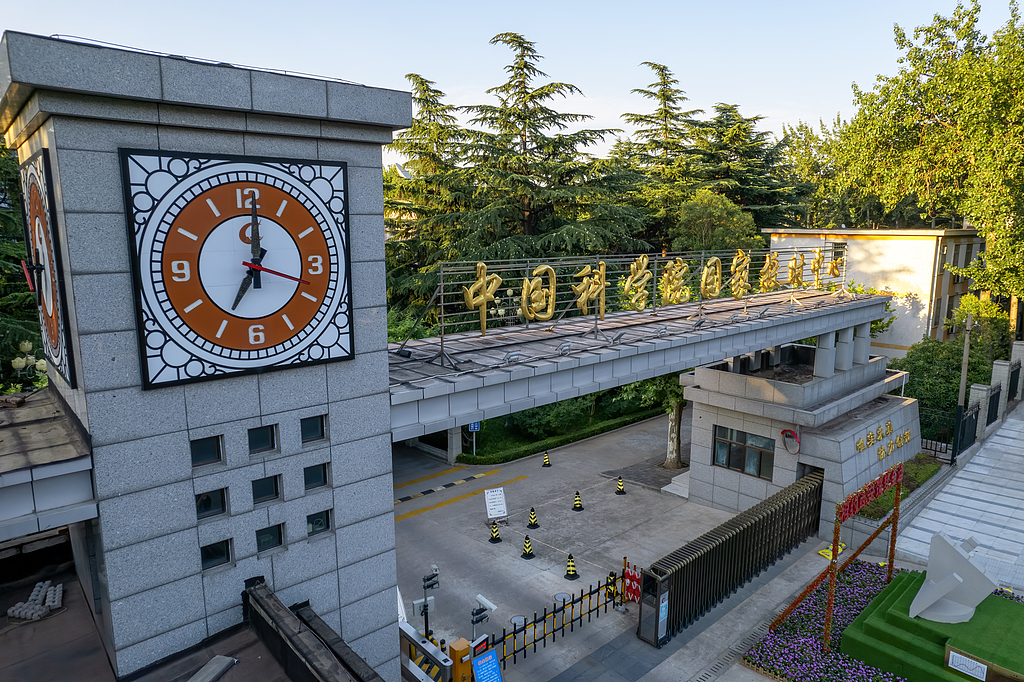China accuses U.S. of secret NSA cyber attack on Beijing’s time system; claims 42 spy tools used in massive hack

China’s Ministry of State Security accuses the NSA of cyber attack on Beijing Time systems. Image Source: ChinaDaily/X
China has accused the U.S. National Security Agency (NSA) of conducting a multi-year cyber attack on its National Time Service Center (NTSC), the country’s hub for maintaining “Beijing Time.”
The allegations, announced Sunday by the Ministry of State Security (MSS), claim the U.S. used 42 sophisticated cyber tools to steal data, infiltrate networks, and compromise sensitive infrastructure.
According to Chinese officials, the breach could have jeopardized communication systems, power grids, financial networks, and even space operations, critical elements tied to the country’s time synchronization system.
China’s MSS Unveils “Irrefutable Evidence” of NSA Cyber Espionage
The MSS revealed through its official WeChat channel that it uncovered “irrefutable evidence” linking the NSA to the cyber attack. Investigations trace the attacks back to March 2022, when the U.S. allegedly exploited vulnerabilities in a foreign smartphone brand’s messaging app to compromise NTSC employees’ devices.
The ministry further claimed that stolen credentials were used repeatedly to access internal systems in 2023 and 2024, followed by the deployment of an advanced “cyber warfare platform” to execute large-scale attacks.
This platform, reportedly operated from VPS servers across the U.S., Europe, and Asia, was said to have launched high-intensity operations during late-night Beijing hours, an effort, China alleges, to hide American origins.
READ ALSO
What caused the latest clash between China and the Philippines in the South China Sea?
The Heart of the Target: China’s National Time System
Established in 1966 under the Chinese Academy of Sciences, the National Time Service Center is responsible for maintaining and broadcasting China’s standard time, also known as Beijing Time.
Any disruption to this system could cause catastrophic consequences, communication blackouts, transportation delays, power outages, and even satellite launch failures.
“The attack wasn’t just about espionage; it was an attempt to shake the foundation of China’s digital infrastructure,” said an MSS official in the statement.
The agency added that its security units “neutralized the attack” and implemented additional safeguards to prevent future breaches.
The U.S. Embassy Pushes Back: “China Is the Real Cyber Threat”
In response, the U.S. Embassy in Beijing denied the allegations and countered that Chinese cyber actors are the “most active and persistent threat” to global infrastructure.
“China-based groups have targeted U.S. government, private sector, and critical networks for years,” the embassy said in a statement to Reuters, dismissing Beijing’s accusations as deflection.
This back-and-forth adds to years of escalating cyber warfare rhetoric between the two powers, both accusing each other of espionage, intellectual property theft, and digital sabotage.
Geopolitical Context: Cyber Accusations Amid Trade and Tech Tensions
The timing of this cyber dispute is notable. It comes just as trade frictions between the two nations intensify, with China tightening rare earth export controls and Washington threatening new tariffs on Chinese goods. Analysts believe Beijing’s public accusation is part of a broader narrative to paint the U.S. as a “hacker empire”, while the U.S. continues to portray China as a digital aggressor.
“This cyber standoff isn’t just about hacking, it’s about global power projection,” said cyber policy expert Lin Yao. “Control over cyberspace is now as strategic as control over air or sea.”
MSS Claims “Victory” in Foiling U.S. Cyber Operation
China’s MSS said it successfully thwarted the attack, preventing any disruption to Beijing Time or related infrastructure. The ministry claimed the NSA’s multi-stage campaign had aimed to steal classified data and destabilize public systems, but the defense response “fully safeguarded national security.”
The MSS also accused the U.S. of conducting similar operations in Southeast Asia, Europe, and South America, often using proxy servers in the Philippines, Japan, and Taiwan to obscure its tracks.
“While the U.S. cries ‘China cyber threat,’ it continues to manipulate global opinion to cover its own espionage,” the MSS statement concluded.
FAQs About the China–U.S. Cyber Attack Allegations
What did China accuse the U.S. of in October 2025?
China accused the U.S. National Security Agency (NSA) of launching a series of cyberattacks on its National Time Service Center, allegedly using 42 hacking tools over several years to steal sensitive data and infiltrate internal networks.
What is the National Time Service Center?
The NTSC, operated by the Chinese Academy of Sciences, manages and broadcasts China’s official time standard, Beijing Time. It plays a vital role in synchronizing communication, transportation, and power systems nationwide.
How did the alleged cyberattack happen?
According to China’s MSS, the NSA exploited security flaws in a foreign smartphone brand’s messaging system to compromise staff devices, then used stolen credentials to access internal servers. The attacks escalated with a new “cyber warfare platform” between 2023 and 2024.
What was the U.S. response to the accusations?
The U.S. Embassy in Beijing dismissed the claims, arguing that China remains the world’s most active cyber threat targeting American and international infrastructure.
Why is this cyberattack significant?
Because the NTSC controls Beijing Time, any disruption could have crippled major sectors, including financial transactions, communications, and satellite launches, with global ripple effects.
Did China stop the attack?
Yes. The MSS said it neutralized the intrusion before any lasting damage occurred, and that enhanced cybersecurity protocols have since been implemented.
What tools did the NSA allegedly use?
China claimed the NSA employed 42 specialized cyber tools to infiltrate and disrupt network systems while erasing digital footprints through high-level encryption and forged digital certificates.
How does this incident impact U.S.–China relations?
It heightens already strained relations marked by trade wars, espionage disputes, and tech competition, further fueling the ongoing narrative of a global cyber cold war.

